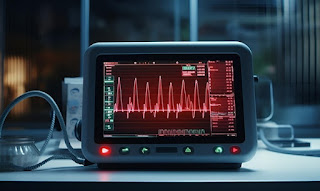Hyperfatigue is an extreme state of exhaustion that goes beyond typical tiredness or fatigue. It can manifest as physical, mental, and emotional depletion, making it difficult to perform daily tasks and reducing overall quality of life. Hyperfatigue can be caused by a variety of factors, including chronic stress, overwork, lack of sleep, poor diet, medical conditions, and mental health issues.
Symptoms of Hyperfatigue
- Persistent and overwhelming tiredness
- Difficulty concentrating or making decisions
- Irritability and mood swings
- Muscle weakness and aches
- Frequent headaches
- Sleep disturbances
- Lowered immunity and frequent illness
- Emotional exhaustion
Tackling Hyperfatigue
Prioritize Sleep:
- Aim for 7-9 hours of quality sleep per night.
- Maintain a consistent sleep schedule.
- Create a relaxing bedtime routine and sleep-conducive environment (cool, dark, and quiet).
Manage Stress:
- Practice relaxation techniques such as deep breathing, meditation, or yoga.
- Set realistic goals and prioritize tasks.
- Take regular breaks and time off to recharge.
- Seek support from friends, family, or a mental health professional.
Improve Diet:
- Eat a balanced diet rich in fruits, vegetables, whole grains, lean proteins, and healthy fats.
- Stay hydrated by drinking plenty of water.
- Avoid excessive caffeine, sugar, and processed foods.
Exercise Regularly:
- Engage in moderate physical activity like walking, swimming, or cycling.
- Aim for at least 150 minutes of exercise per week.
- Incorporate strength training and flexibility exercises.
Seek Medical Advice:
- Consult a healthcare professional to rule out underlying medical conditions such as anemia, thyroid issues, or sleep disorders.
- Follow prescribed treatments and medications if any medical conditions are diagnosed.
Mental Health Care:
- Address any mental health concerns such as anxiety or depression with the help of a therapist or counselor.
- Practice self-care and engage in activities that bring joy and relaxation.
Time Management:
- Plan and organize your tasks to avoid last-minute stress and overwork.
- Delegate tasks when possible and learn to say no to avoid overcommitting.
Create Boundaries:
- Establish boundaries between work and personal life.
- Ensure you have time for hobbies, relaxation, and socializing.
Long-term Strategies
- Regular Health Check-ups: Regular visits to your doctor can help catch any health issues early.
- Mindfulness and Meditation: Regular practice can help manage stress and improve overall well-being.
- Community and Social Support: Engaging with a supportive community can provide emotional support and reduce feelings of isolation.
By addressing the underlying causes and adopting a holistic approach to health and well-being, you can effectively tackle hyperfatigue and improve your overall quality of life.





